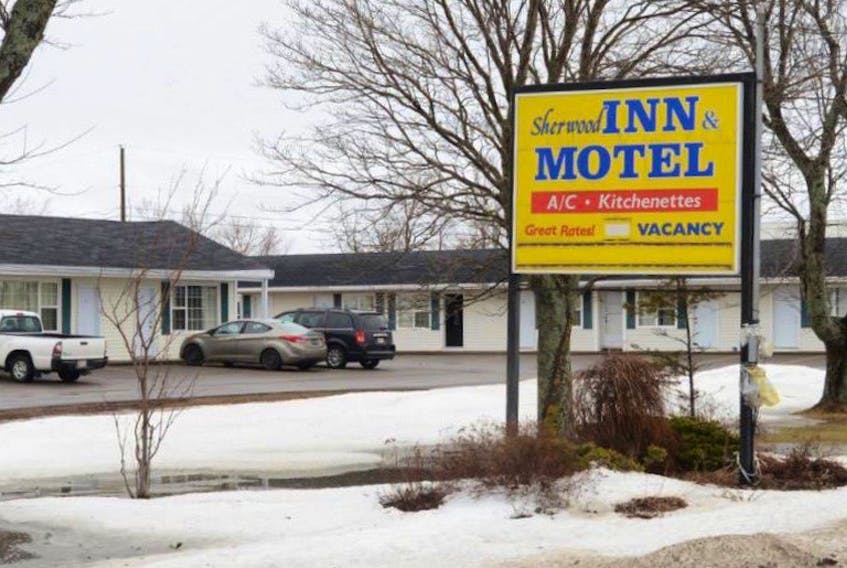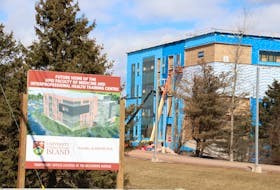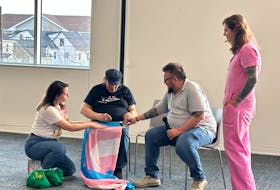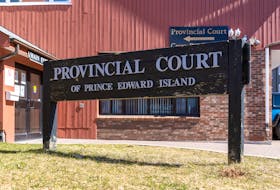CHARLOTTETOWN, P.E.I. - New documents released in connection with the Sherwood Motel trial reveal that provincial staff made minimal efforts to track several provincial nominee program applicants but absorbed tens of thousands of dollars of “good faith” deposits from these applicants.

Hundreds of pages of documents were released to The Guardian following the stay of charges against Ping and Yi Zhong, two siblings who own the Sherwood Motel. The documents include information related to seven PNP applicants, all Chinese nationals, who listed the Sherwood Motel as an address upon arrival in Canada. All seven had already been approved for permanent residency under P.E.I.’s PNP prior to arrival. All landed on P.E.I. between April 2010 and August 2012.
Island Investment Development Inc., which administers the province’s immigration programs, issued letters to the legal representative of the seven applicants, one year after their arrival on P.E.I., stating their good faith deposit of $25,000 would be forfeited to the province. IIDI absorbed the good faith deposit of all seven PNP applicants, citing lack of evidence of residency in P.E.I. Three others also had their $20,000 language deposit, which required applicants to demonstrate English-language proficiency, forfeited to the province.
For six of the seven applicants, an email was sent to Chris Somers of the Halifax-based Canadian International Capital, an immigration consultant who acted on their behalf, with the exact same wording.
“Please note that this client has never been into our office for a landing therefore, we do not have contact information on file,” the email read.
Five of the seven applicants had signed a landing declaration bearing the logo of IIDI on it, shortly after arriving on P.E.I. These letters were signed by an IIDI program officer.
Two of the PNP applicants had submitted a form, which bore the IIDI letterhead, which authorized one of the Zhong siblings to pick up their language deposit cheques. These forms included a forwarding address for the applicant – one in Richmond Hill, Ont., and one in Markham, Ont.
IIDI collected over $47 million between 2013 and 2018 in PNP-related defaults. The province announced in September it would be discontinuing the business stream components of the PNP, which required good faith and escrow deposits from business stream immigrants, because of low retention rates.
The Zhong siblings were charged with several counts of aiding or abetting misrepresentation under the federal Immigration and Refugee Protection Act, in relation to alleged falsification of P.E.I. addresses of these seven PNP applicants. Defence lawyers for the Zhongs argued that the Sherwood Motel was listed as an address because new immigrants often did not have a permanent address upon arrival. The defence also argued that the Canadian charter allowed permanent residents to move to other provinces. P.E.I.’s PNP did, however, encourage successful applicants to reside on the Island as a condition for approval.
The charges against the siblings were stayed by the crown in December.
Ping Zhong described the ordeal, which began with a morning raid by CBSA personnel in February 2016 and ended with the public trial, as a “nightmare”. She said she and her brother had lost friends and business opportunities because of the accusations.
The Crown has one year to re-assess whether to recommence legal proceedings against the Zhongs.
Also included in the trove of Sherwood Motel documents is a 100-page transcript of an interview of Ping Zhong carried out by CBSA investigator Lana Hicks shortly after the CBSA raid on Feb. 17, 2016.
According to a transcript of the interview, Zhong initially seemed to co-operate with the investigation. Although CBSA personnel gave Zhong the opportunity to call duty counsel for legal advice, Zhong allowed herself to be interviewed for a seven-hour period without legal counsel present.
At one point in the interview, Zhong stated she allowed guests to have mail sent to the motel because they had not yet found a permanent address.
At another point, Hicks asked if P.E.I. politicians or companies had approached her “to say could you provide your address to new immigrants under PNP?”
“No,” Zhong replied.
During the interview, Zhong noted that PNP applicants often understood that they could arrive in P.E.I., pay their deposit and then reside elsewhere in Canada.
“So many people, they used it as a bridge to come here because the money is not too expensive, and then they go some other places. I told it to someone. Actually, I got some power at a, maybe a party or something and I said it. Everybody knows that,” Zhong said.
“Everybody knows it,” Hicks replied.
“Everybody knows it. Right? It’s not a secret,” Zhong said.
RELATED: Sherwood Motel immigration fraud trial hears details of permanent residency requirements
RELATED: Judge in Sherwood Motel immigration fraud trial makes some exhibits available to media
RELATED: P.E.I. PCs ask why no red flags were raised on Sherwood Motel
RELATED: Trial begins for Charlottetown motel owners charged with immigration fraud









